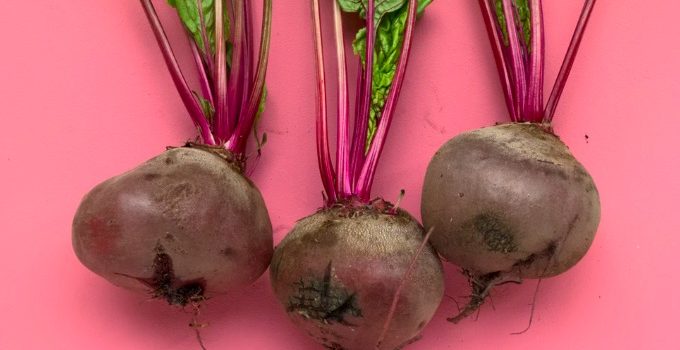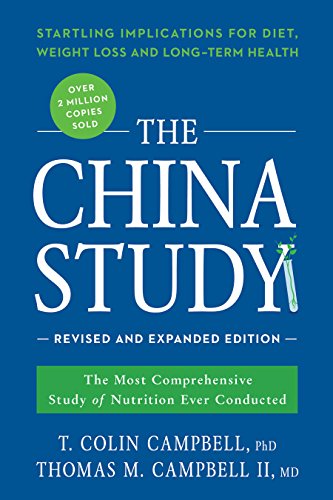

This article is an excerpt from the Shortform summary of "The China Study" by Colin Campbell. Shortform has the world's best summaries of books you should be reading.
Like this article? Sign up for a free trial here .
What is a holistic diet? How can it make you healthier while also helping the planet?
A holistic diet is a way of eating that focuses on whole, unrefined food in its natural state.
Learn the 7 principles of the holistic diet and discover why it leads to better health.
Holism and the Confusion Around Nutrition
Americans are confused about what to eat to be healthy. This is largely due to the prevalence of fad diets and the reductionist approach to research practiced by many scientists and marketers. Generally, fad diets are not holistic diets–they’re not focused on whole, unrefined foods.
Also leading to our confusion about nutrition is the practice of reductionism. This is the practice of doctors, researchers, and reporters focusing on the health benefits of specific nutrients like vitamin A and calcium rather than the food as a whole. This oversimplifies our biological systems and the holistic effects of food on the body, leading to confusing and contradictory research results. We end up talking about the benefits of specific nutrients rather than food they come from.
Because the whole food is more than the sum of its nutritional parts, changing your diet one nutrient at a time isn’t going to make you healthier. You need to look at the bigger picture, your dietary and lifestyle patterns as a whole, to understand how to be healthier and eat a holistic diet.
The Holistic Diet of The China Study
T. Colin Campbell, author of The China Study, believes health is a holistic phenomenon (he terms it “wholistic,” adding the “w” to emphasize the term’s link to whole foods and an approach to health that addresses the whole person). All the chemicals in a particular food work together to promote or weaken health.
Therefore, no single nutritional factor causes a disease. The health of the human body depends on complex and various mechanisms with numerous known and unknown inputs and outputs. Isolating one factor isn’t necessarily helpful, nor are the results of these kinds of experiments conclusive. Further, diet works in tandem with other lifestyle factors such as physical activity, making it even more difficult to isolate one dietary factor as a cause of disease.
The whole-foods, plant-based diet promoted in The China Study is an example of a holistic diet. It prizes dietary patterns over specific nutrients.
The Holistic Diet as an Alternative to Traditional Healthcare
Although an increasing number of doctors are learning the value of holistic diets and lifestyles, the majority still turn to surgery and pills rather than food and holistic treatments to heal their patients.
While these treatments can be effective, they’re not always safe. In fact, medical care is the 3rd leading cause of death in the U.S., although the U.S. Centers for Disease Control and Prevention refuses to acknowledge it on its list of the top ten causes of death.
Doctor errors, medication errors, and deaths from drugs and surgery kill 225,400 people every year. This is less than the number of people killed by heart disease (710,760) and cancer (553,091), but more than those who die of strokes (167,661) or respiratory diseases (122,009).
These are deaths resulting from people following doctors’ orders and taking medication as directed. And 225,400 deaths is a conservative estimate. It doesn’t include deaths from clearly labeled side effects or deaths from overdoses. The actual number of deaths caused by medical care is probably closer to 400,000 per year.
Clearly, doctors aren’t following the Hippocratic Oath to do no harm. But it’s not necessarily their fault. Our system encourages the use of risky surgeries and drugs rather than the safer (and often more effective) treatments of holistic diets and lifestyle changes.
Holistic Diet: One Facet of Holistic Health
A holistic diet is part of a web of holistic health benefits. Good nutrition works holistically with physical activity, mental and emotional health, and our environments.
Positive lifestyle changes work together and build off of one another to promote health. A holistic diet jump-starts a cycle: Eating well gives us more energy. Having more energy makes it easier to exercise more. Exercising more promotes mental and emotional health. When we’re in a better mood, we eat healthier meals. Each lifestyle change reinforces the cycle of good health.
Eating a holistic diet is also good for the planet. It allows us to use less water, less land, and fewer resources. Growing plants also generates far less pollution than raising livestock. Consequently, eating what’s best for our physical, mental, and emotional health is also what’s best for the planet.
The Seven Principles of Plant-Based, Holistic Diet
Principle #1: Various Nutrients Work Together to Achieve Health
No single nutrient is responsible, on its own, for good health. The way food chemicals function in the body and the way they interact with each other are too complex to ever fully understand. The sum of all these chemicals working together is greater than the actions of each individual chemical.
This is why the “whole foods” part of the whole foods, plant-based, holistic diet is important. How nutrients are packaged together in food matters more than the specific nutrients themselves. This brings us to Principle #2.
Principle #2 Avoid Supplements—Get Your Nutrients From Food, Not Pills
Supplements are problematic for a variety of reasons. First of all, the whole concept of a supplement ignores Principle #1—it’s the whole food, not a particular nutrient, that provides the most benefit.
Additionally, supplements are poorly regulated, so you don’t really know what you’re getting when you buy them. They may have unforeseen side effects and some can cause harm. For example, many researchers caution against taking beta-carotene supplements because they’ve been shown to increase lung cancer risk.
Another problem is that supplements encourage people to eat poorly and “compensate” by taking pills.
Exceptions to Principle #2
Vitamin B12: A plant-based, holistic diet doesn’t contain B12, which is found only in animal products. Supplements of this vitamin have been shown to be effective in resolving deficiencies and there’s no evidence they cause health problems.
Vitamin D: While we can usually get the vitamin D we need easily from the sun, some people living in northern climates won’t see enough daylight to meet their needs. Studies on the benefits of vitamin D supplements are inconclusive. Sunlight is still the best way to get your vitamin D.
Principle #3: The Same Principles That Prevent Disease Can Reverse It
A holistic diet can prevent heart disease, diabetes, and obesity. It’s also been shown to reverse these diseases.
There are some exceptions, of course. Autoimmune diseases are largely irreversible. Still, a plant-based, holistic diet has been shown to slow the progress of even incurable diseases like Type 1 diabetes, rheumatoid arthritis, and multiple sclerosis.
Principle #4: Genes Alone Don’t Cause Disease
We have considerable control over which genes are expressed.
Dormant genes, genes that aren’t expressed, have no effect on our health. Genes only affect us when they’re activated, and diet is one of the biggest triggers of gene activation.
Researchers can turn “bad” genes on and off by altering the amount of animal protein they give to mice.
The idea of dietary triggers explains why, in populations made up of people who share a genetic heritage, disease rates vary widely.
Further, genes evolve slowly, changing minimally, or not at all, over hundreds of years. But disease rates change at a much faster rate, sometimes in a period as short as a year. Therefore, we can’t blame changing genes for increasing disease rates.
In summary, genes give us dispositions, but they don’t dictate what diseases we’ll get. A holistic diet can work to keep “bad” genes from turning on.
Principle #5: Plant Foods Are Healthier Than Animal Foods
Almost any nutrient you can find in animal-based foods, you can find in a healthier form in plant-based foods.
Plant foods have more of almost every nutrient, including fiber, vitamins, minerals, and antioxidants. Most animal foods lack these nutrients. In their place, they contain cholesterol and fat.
Vitamin B12 is the only true exception. As detailed in Principle #2, consider a vitamin B12 supplement if you eat a plant-based, holistic diet.
Principle #6: A Holistic Diet Can Counter Carcinogens
As a society, we’re under the impression that carcinogens like DDT, Red Dye Number 2, and artificial sweeteners cause cancer (that is, when we’re not under the impression that genes cause cancer).
We like to blame carcinogens because, in some cases, they’re easier to avoid than whole food groups. But, like genes, carcinogens are often activated by diets high in animal protein.
Conversely, antioxidant-rich plant foods can diminish the potency of carcinogens.
Principle #7: Good Nutrition Is Good Across the Board
Nutrition that prevents one disease is probably beneficial for health in general.
Regardless of how whole, plant foods function to reduce your risk of various diseases, they seem to reduce risk across the board. Therefore, if you know that a holistic diet is good for your heart, you can be pretty sure it’s also good for your brain, liver, kidneys, and nervous system.
———End of Preview———

Like what you just read? Read the rest of the world's best summary of "The China Study" at Shortform . Learn the book's critical concepts in 20 minutes or less .
Here's what you'll find in our full The China Study summary :
- Why animal proteins (meat, milk) might cause cancer, diabetes, and other diseases
- Why the medical institution is structured to hide the truth about disease and food
- The precise diet you'll need to eat to live longer and feel happier







ShortForm is literally the BEST weight loss Blog, I read it and checked it news everyday